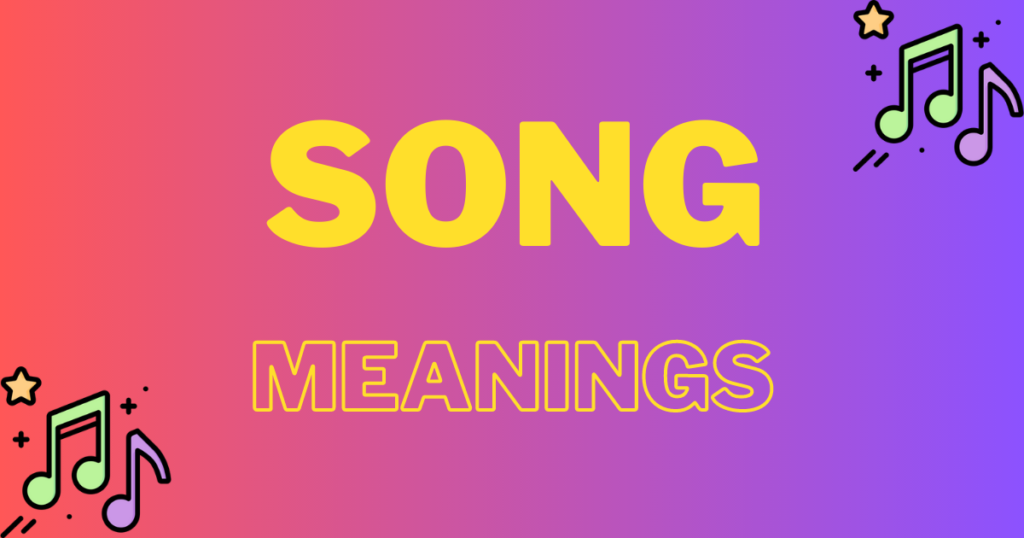The Meaning Behind The Song: We Don’t Talk Any More by Cliff Richard
Cliff Richard’s iconic song “We Don’t Talk Any More” holds deep emotional meaning, resonating with listeners around the world. Released in 1979, this popular track explores the pain and regret that can arise from a broken relationship. Richard’s soulful vocals and heartfelt lyrics make this song a timeless classic that continues to touch hearts.
The meaning behind “We Don’t Talk Any More” revolves around the breakdown of communication between two individuals who were once intimately connected. As the title suggests, the song delves into the silence that has replaced the once vibrant conversations. It speaks to the melancholic reality that after a breakup, the deep connection and mutual understanding shared between two people fades away, leaving them disconnected and unable to connect on the same level.
This song evokes emotions of longing, reminiscence, and a sense of loss. Richard’s powerful interpretation captures the raw emotions experienced when love fades away, leaving behind a void that is hard to fill. The lyrics paint a vivid picture of the pain and emptiness that comes with the absence of meaningful communication in a relationship.
Frequently Asked Questions about “We Don’t Talk Any More” by Cliff Richard
1. What inspired Cliff Richard to write “We Don’t Talk Any More?”
Cliff Richard drew inspiration from personal experiences and observations of broken relationships. He wanted to explore the universal theme of lost connection and the ensuing silence that often follows.
2. Did Cliff Richard write the song himself?
No, “We Don’t Talk Any More” was written by British songwriter Alan Tarney. However, Richard’s emotive delivery brought the lyrics to life and made the song his own.
3. Has the song received any awards?
While “We Don’t Talk Any More” did not receive any major awards, it remains one of Cliff Richard’s most successful songs, reaching number one on the UK Singles Chart and becoming a staple in his discography.
4. Are there any notable cover versions or remixes of the song?
Over the years, various artists have covered “We Don’t Talk Any More,” including popular renditions by Olivia Newton-John, Hank Marvin, and Robbie Williams. These covers showcase the timeless appeal of the song.
5. What emotions does the song evoke?
“We Don’t Talk Any More” evokes a mix of emotions, including sadness, nostalgia, and introspection. It resonates with listeners who have experienced the pain of lost connections in their own lives.
6. Can the song be interpreted differently by different listeners?
Absolutely! Like many meaningful songs, “We Don’t Talk Any More” allows for personal interpretation. Listeners may filter the lyrics through their own experiences, attaching individual meanings to the song based on their unique emotional journeys.
7. Is the song relatable to a broader audience?
Yes, the themes explored in “We Don’t Talk Any More” resonate with a wide audience. The song captures the universal experience of love lost and the subsequent struggle to communicate.
8. How has “We Don’t Talk Any More” impacted listeners?
The song has touched countless lives, providing solace and validation to those who have experienced similar relationship challenges. It serves as a reminder that many people have gone through the same emotional journey.
9. Has the song aged well since its release?
Despite being over four decades old, “We Don’t Talk Any More” remains relevant and continues to find new listeners. Its timeless themes and memorable melody have ensured its longevity.
10. What other songs by Cliff Richard are similar thematically?
Richard’s discography features several songs that explore similar themes of love, loss, and heartbreak. Some notable examples include “Miss You Nights,” “Ocean Deep,” and “Some People.”
11. Did the song achieve international success?
Yes, “We Don’t Talk Any More” reached number seven on the Billboard Hot 100 chart in the United States, solidifying its status as a global hit.
12. Can the song still be considered a classic?
Absolutely. The enduring popularity of “We Don’t Talk Any More” and its continued relevance in popular culture solidify its status as a timeless classic in the music industry.


